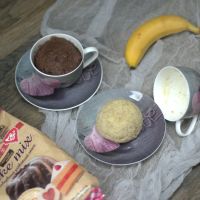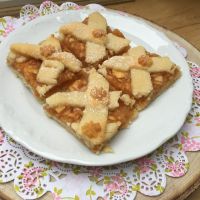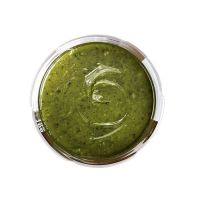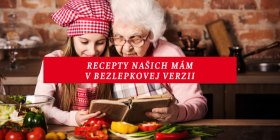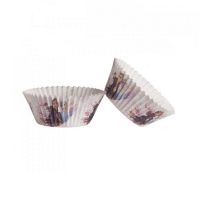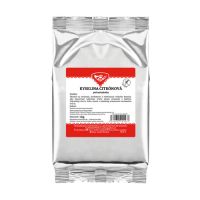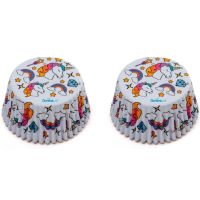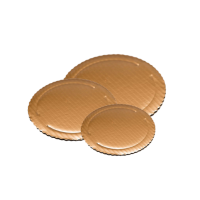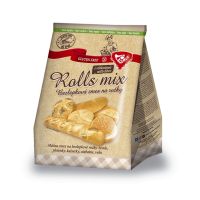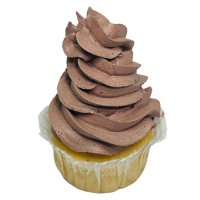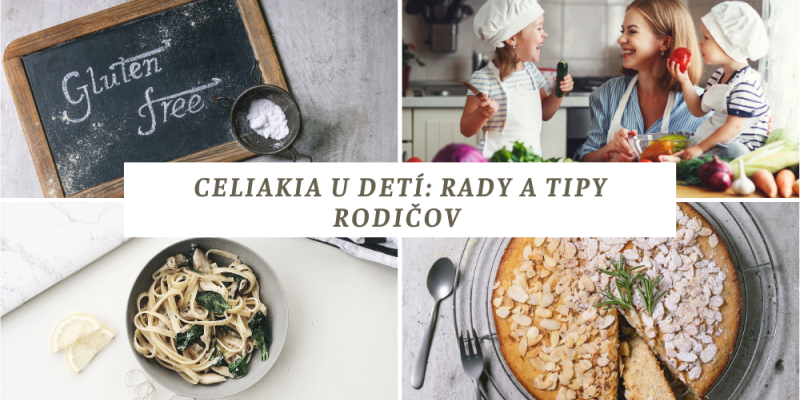
Celiac disease in children: A parent is an irreplaceable ally of his child on a gluten-free diet
Celiac disease can surprise everyone who comes into contact with it. You can read about what celiac disease is and how to gradually switch to a gluten-free diet in our previous articles, for example here .
In this article, we will focus on celiac disease in children. Children are often unable to correctly identify and evaluate its manifestations, and therefore it is up to parents to pay attention and be able to act correctly if celiac disease is suspected. The article would not have been created without the answers of parents of small celiacs who told us what their children's transition to a gluten-free diet was like. Thank you, dear parents, for your honesty and time, we could not have put these lines together without you. You won't find any health recommendations in the article, that's what doctors are for. Rather, it serves to raise awareness about this autoimmune disease. Remember that every child is different and what fits/sat the children in this article may not apply to yours.
Symptoms of celiac disease in children can vary widely, and some children may show no visible symptoms at all. The age at which the first symptoms appear can also vary.
Katarína: My son was two years old when he started having digestive problems, his belly swelled, he lost weight, he stopped thriving, he stopped talking and walking (he had big problems with these activities).
Kamila: The symptoms I noticed first were mainly abdominal pain and nausea. The daughter was diagnosed with celiac disease when she was 10 years old. Even though we had dealt with these symptoms before and underwent various tests, we had no idea that it could be celiac disease because we had never come into contact with it in our family before.
Miroslava: My daughter vomited for a long time when she was in a mental state, which we initially attributed to her nature. It eventually developed into celiac disease.
In addition to food, gluten can also be found in some cosmetic products, including shampoos, conditioners, lotions, lipsticks, and more. Ingredients containing gluten in cosmetics are often obtained from wheat, barley or rye. Therefore, some children with celiac disease may develop skin manifestations and a rash characterized by itchy skin.
Miroslava: My daughter has a contact allergy, so she cannot even come into physical contact with gluten. Which means that, for example, we have to make plasticine at home, since the ones in stores in most cases contain gluten. She was also running out of sunscreen. Anyway, before giving birth to her second daughter, she developed a rash on her finger. Unfortunately, it still hasn't disappeared, even when following a diet.
Katarína: Fortunately, we didn't notice this, basically we don't even use such cosmetics. The toothpaste, soaps and creams we use are fine.
Celiac disease can affect a child's growth and development, especially if the condition is undiagnosed or untreated for a long time. As soon as a child starts a gluten-free diet, he catches up with his peers in growth very quickly.
Kamila: I realized that my daughter was also smaller than other children her age. However, she caught up after starting a gluten-free diet.
Celiac disease has a genetic component. Although genetic tests can identify at-risk individuals, they do not confirm the presence of the disease. Parents and other family members can pass genes to their children that make them develop celiac disease. But as parents' experiences confirm, this is not always the rule.
Miroslava: My husband had a blood antibody test done. I also had my antibodies tested and underwent a genetic test to see if I am a carrier of the gene that predisposes me to celiac disease. Our younger daughter is also only tested for antibodies. Based on the tests, we found out that the husband's family is a carrier of this gene with a high probability.
Katarína: My daughter was two months old at the time of the outbreak of celiac disease in my son, and I had her tested when she was six months old. The gastroenterologist talked me into not bothering her with blood sampling and waiting for symptoms. I said that I want to know if he is a carrier of this gene, after all, he is my child. Of course, she also has a genetically confirmed gene, we are waiting to see if it will break out and when. I have the gene, I'm also waiting for an outbreak.
Kamila: When we had our daughter tested for celiac disease, we underwent the tests at the same time as her. The genetic tests were negative for us and our second daughter.
Parents of children with celiac disease should not stop educating themselves. Staying informed about the latest research, products and resources related to celiac disease is very important. The field of gluten-free living is constantly evolving, so lifelong learning is key.
Katarína: Always check everything properly, rather ask something a hundred times/read how you should live with fear of what could or could happen.
Miroslava: Celiac disease is not an allergy, but an autoimmune disease that forces the body to fight against its own tissues. Don't give celiac disease a chance to "awaken" other autoimmune diseases in you or your children.
If the child is older, talk to him about celiac disease. Open communication within the family is key. Parents should create an environment where their child feels comfortable talking about their condition, feelings and any problems they may be facing. Parents often need to provide their child with emotional support, help them cope with dietary restrictions, potential social problems and any health problems associated with celiac disease.
Katarína: We regularly look at photos from this period, we talk about what happened, why it happened and that we don't want it to happen anymore. We also talk about the feelings and fear we were experiencing at the time.
Kamila: The daughter is already an adult. When she was young, she was quite cautious because she had experienced her own before the diagnosis was confirmed. She understood what celiac disease entailed when we explained it to her, only sometimes she was unhappy because she couldn't eat the things she used to like out of nowhere.
Support from relatives, friends, but also other parents with a similar problem is also essential .
Miroslava: Try to find as many gluten-free communities as possible on social networks. One does not want to be alone in this situation. There you will find many advices and tips from other parents on how to proceed.
Katarína: Relatives are considerate and understanding - after all, they lived through those troubles with us; and friends also respect us and think of us, they always bring something gluten-free to the playground.
Celiac parents are constantly planning and preparing gluten-free meals in advance, which can be more time-consuming. They must be vigilant when reading the ingredients on foods and look for safe alternatives. Even if a child has celiac disease, he can still have a balanced and varied diet.
Miroslava: My favorite is baked chicken with rice. Like most young children, she likes sweets. She misses donuts or donuts.
Kamila: My daughter likes rice pasta with any kind of sauce - but mostly with tomato sauce. He bakes gluten-free tortillas . Also, since she is already an adult, she likes to try other cuisines. She likes Asian.
Explore gluten-free alternatives and safe grains like rice, corn, quinoa, and gluten-free oats.
%20(2).png)
Katarína: My son loves bryndza gnocchi, he basically eats gnocchi in different ways, but there must also be bacon. As for sweet foods, he likes cocoa wasps' nests and ducat buns , which we make exclusively from Bakery mix Liana flour mixture for sourdough. Among his other favorite dishes are perkelt or paprika, roast meat or tenderloin with homemade dumpling . He also likes steamed buns with chocolate and freshly baked gluten-free pastries. At home, we like barbecues and do not allow homemade hamburgers (gluten-free ones are good for the whole family).
Planning a safe trip or vacation for a child with celiac disease requires careful preparation. Before traveling, it is necessary to research the destination and identify gluten-free restaurants, shops and dining options nearby. Websites, apps, and online forums can be helpful resources for finding safe dining options.
Katarína: We have completed our first holiday abroad, in Croatia. Croatia is not the best choice, but it can be done. We were the first at the buffet tables, because we were afraid of contamination from people (and we did well when we saw how people scooped the omelette directly onto the bread and then stuck the scoop into the omelette). We knew that it was better for us to get up than to lie in the apartment with a stomach ache. I always check stores to see if there is a possibility to buy gluten-free food nearby. Of course, we are happy if we come across something gluten-free on any trip/holiday - it's a win for us, it improves our mood and it's a reward for us. So even though we have our supplies, we can't resist.
Kamila: Vacation is a bit different. But even that can be managed. That is, unless they are destinations such as Tunis, Egypt and the like. Basically, it became our family sport that wherever we traveled, we were interested in the gluten-free range in local stores.
Choose accommodation with kitchen facilities, such as apartments with a kitchenette. This allows you to prepare gluten-free meals and snacks for your child.
Miroslava: We deal with vacations by going wherever there is accommodation with a kitchen (so that I can cook).
Katarína: I always worry about holidays. It's such a little nightmare for me, despite the fact that we like to go on vacations. We always choose accommodation with self-catering.
Before eating at a restaurant, talk to the staff and ask if they are able to prepare gluten-free food. Inform them of the seriousness of your child's condition and ask them to take precautions to prevent cross-contamination.
%20(4)(1).png)
Miroslava: If we manage to find a restaurant that also cooks without gluten, it's a bonus for us.
Katarína: On vacation, we occasionally go out to eat - I always find out beforehand if there is even a possibility to eat gluten-free.
Be prepared for unforeseen circumstances and have a backup plan in case your intended dining option doesn't work out. Flexibility helps reduce stress.
Katarína: We always carry a supply of gluten-free sweets with us, we always have gluten-free pastry/bread - we don't go anywhere without it.
Miroslava: I always have baked goods and snacks from home prepared for my daughter.
Kamila: Of course, one has to stock up on one's own food to be sure. Even though you can buy gluten-free food even abroad.
Even a regular outdoor trip involves careful preparation for children with celiac disease to ensure they enjoy the experience without risking gluten exposure.
.png)
Katarína: Our trips are always about gluten-free "cardboard cakes" that we prepare at home.
Miroslava: We mostly go hiking and prefer to spend time in nature. We don't go to hotels, we don't want to risk contamination.
Parents advise: Try to communicate your child's dietary needs at school, during extracurricular activities and social events. Communicate with teachers, educators, and other parents to increase awareness of your child's condition. Don't give up.
Miroslava: In the beginning, I had to cook for kindergarten every day so that my daughter would have the same food according to the menu of the canteen. So that she does not feel inferior and singled out from the collective. After about a year, I managed to introduce at least gluten-free spices to the head of the school canteen. Currently, he receives the same meals as other children, but not thickened with flour. A good gluten-free option for thickening meals is potato or corn starch. (Editor's note). The daughter always brings her own side dishes and pastries.
Kamila: As far as school is concerned, when it comes to tenth grade, it's fine. I tried to always prepare a varied and balanced snack for my daughter, which would satiate her sufficiently until lunch. It was more difficult at lunch. Unfortunately, the school canteen did not cook gluten-free. That's why my daughter couldn't go to lunch and I had to cook at home every day. So even such a school in nature was out of the question in our case. She didn't want to go to camps, even though nowadays you can find a camp where they cook completely gluten-free.
Katarína: Before joining the school, the school staff were instructed. My son brings his own food, as they do not cook gluten-free in the school canteen. We are still struggling with reluctance to heat food. The son is a freshman and has to handle the microwave himself, they don't provide him with a plate, only a spoon. So one must not eat from one's own bowls. After our complaint, his food is at least heated and pickled.
%20(5).png)
Photo source: mother Katarína prepares such boxes for her son to go to school every day. You can find more inspiration on her Instagram @mama_malehoceliatika.
Even if your child is diagnosed with celiac disease, you don't have to despair. Today, there are many gluten-free alternatives so that you can handle cooking and baking with as little stress as possible. You can also find gluten-free flour mixes and baking and cooking supplies in our e-shop www.liana.sk . Also, if you need to be inspired by specific procedures, our recipes can be a great help.
